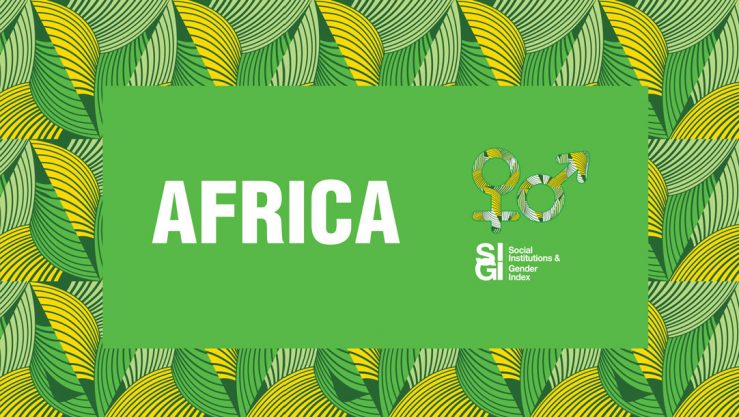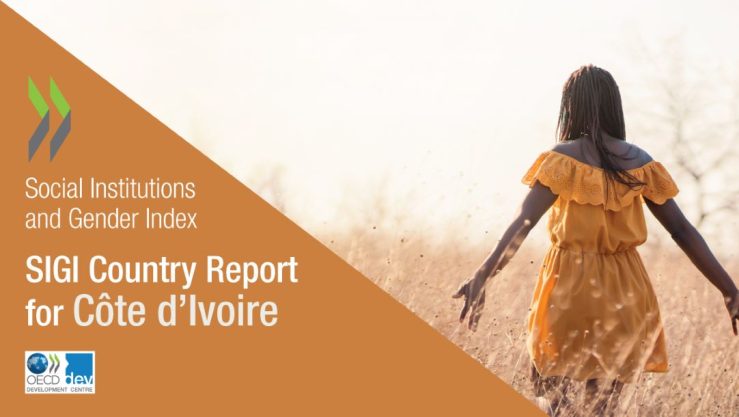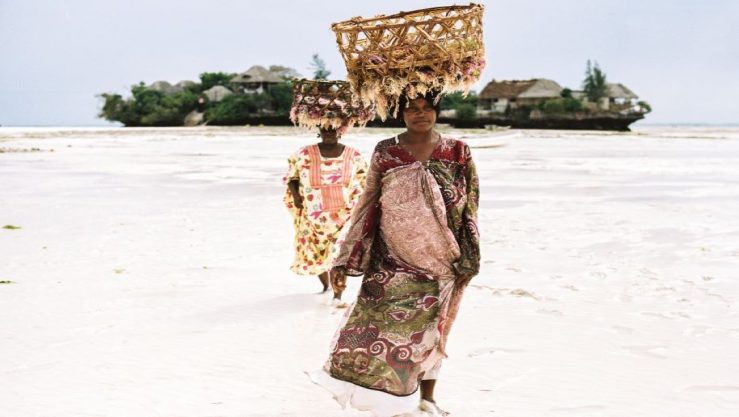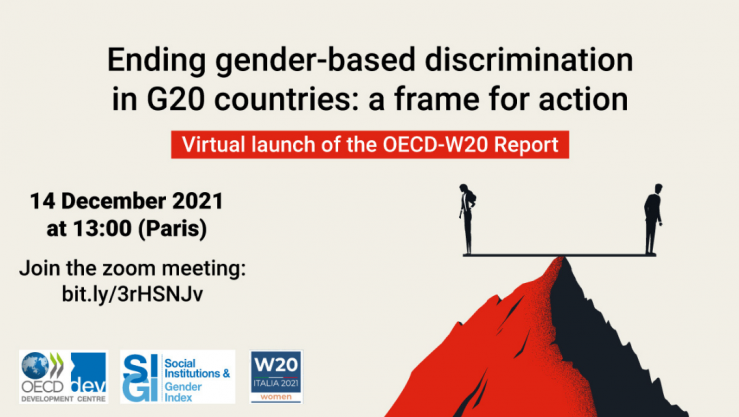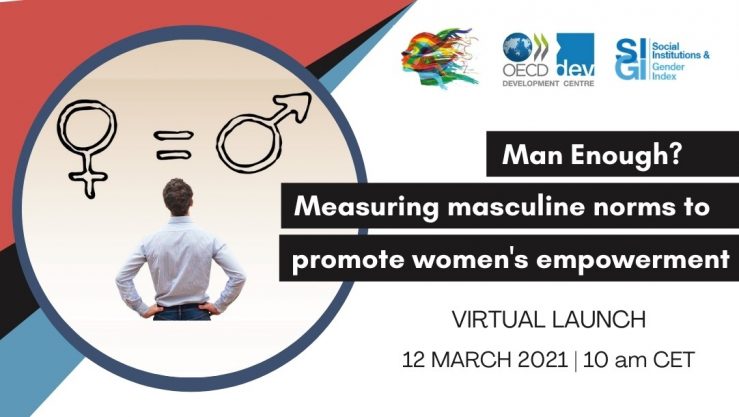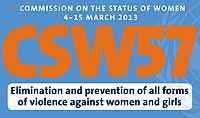|
|||||||
Place for your Slider.
Wikigender University: Sciences Po

Wikigender University aims to:
- Actively engage students in the development of this gender equality platform
- Bring together a range of universities to foster networking possibilities among students and academics, thereby extending the network of Wikigender users
- Enhance opportunities for building capacity in gender research, information sharing, social networking, IT and editorial skills.
2011 Contributions
From December until June 2011, 4 students from Sciences Po contributed to a wide range of articles on the Wikigender site. Each month, they focused on a new topic. Click on the topics below to read their articles:2
- Gender Equality and the Environment
- Gender Equality and Web 2.0
- The role of women in conflict resolution and peacebuilding
- Gender Equality in employment, education and entrepreneurship
- Gender inequality, social institutions and the Millennium Development Goals
- Women and Migration
- Sciences Po 2011 Final Presentation
Student authors
- Lucille Gressier
- Charlotte Lazare
- Natalie Mitchell-Bennett
- Inès Ayari
2010 Contributions
From January until June 2010, 4 students from Sciences Po contributed to a range of articles to the Wikigender site and edited a number of existing articles. These articles ranged in theme from gender equality and issues in health, conferences, theories and concepts, organisations, initiatives and notable gender equality advocates.
Noteworthy individuals:
- Louise Michel
- Pierre Bourdieu
- Simone de Beauvoir
Theories and concepts:
- Feminist International Relations Theory
Social and health issues:
- One child policy
- Gender mainstreaming
- Millenium Development Goals and Women’s Health
- Marital rape
- Women in the military
Organizations and initiatives:
- Spring Bud Project
- One World Action
Conferences:
Gender Equality and Progress in Societies
- Notes for session 1 Making the economic case for empowering women
- Notes for session 4 Gender equality and progress in societies: what have we learnt and how to move forward? A roadmap for action
Student authors:
- Lorène Florentin
- Claire Spagnol
- Peilin Bao
- Sébastien Deniau
See also
- Wikigender University
- Wikigender University: About
- Sciences Po
- American University of Paris
- Training
- Student articles
External links
- May 13, 2013
- 0
- 5224
- France, Sciences Po, Wikigender University
- More
Wiki
Definition
A wiki is ‘a’ type of website that is developed collaboratively by a group of users, and can be easily added to or edited by anyone (known as ‘open editing’). ‘Wiki’ is a Hawaiian word meaning ‘quick’ (when repeated it means ‘very quick’) and was first used in this sense in 1995 by the US computer programmer Ward Cunningham, who called his website the WikiWikiWeb.Oxford Dictionary Online. See http://www.askoxford.com/worldofwords/bubblingunder/archive/bubbling_03/?view=uk
How do wikis work?
A wiki is a hybrid of tool and communityShirky, C. 2008, Here Comes Everybody: The Power of Organizing Without Organizations, Penguin Press HC
In order for a wiki to function, it must have a community of users who read, edit and create the information on the platform. A wiki is only ever as strong as the community who nurture it.
Creating and editing articles
See How to create an article and how to edit an article for instructions and help on developing Wikiprogress articles
Creating a new article is simple. Lets say for example someone decides a new article needs to be created on the Human Development Index. The author does not necessarily need to be an expert in the area; all they need to do is begin the process of an article. They can contribute by adding just one sentence: ‘The Human Development Index is a composite statistics used to rank countries by levels of human development.’
The articles is then viewed by readers who edit and develop the article bit by bit to add as much information as possible.
Editors can either contribute a significant amount of information, by adding the complete HDI ranks for 2010, or writing about the methodology of the HDI, or they can simply add a reference, correct a spelling mistake or add a picture. Bit by bit the community works together to develop the article.
A wiki article is a process, not a product, and as a result it is never finished.Shirky, C. 2008, Here Comes Everybody: The Power of Organizing Without Organizations, Penguin Press HC
This is one of the key differences between wikis and other information gathering tools, as it is in a permanent stage of development. This function of the wiki allows for a wide variety of individuals to contribute to a single article, gathering information from many different users. As articles are never finished, each edit can be seen as a provisional change.
On quality and vandalism
Wikis operate with a publish then filter system, which has added fuel to the fire for the argument against the quality of wiki articles and in theory should leave the platform open to vandalism. This is not the case.
As explained earlier, wiki articles are a process and as such each little contribution, published in real time, allows for the development of the article to happen with no interruption or delay.
Vandalism is rare on any wiki platform, and there are a few reasons for this. Firstly, it is incredibly easy to erase vandalism or mistakes by simply ‘reverting’ the article to what it was before the edit. The same goes if an entire article is deleted- it can simply be reverted back to what it was before the vandal deleted it. The history of every article on the wiki is open for all to view, showing how the article has been developed, who edited what and if there have been any attacks of vandalism.
Additionally, a feed of activity on the Wikiprogress home page shows articles as they are edited, allowing a team of dedicated Wikiprogress quality assures to review the new article or edit and ensure it is valid. If in doubt, the quality assurance team can contact a relevant expert.
Division of labour
There are two key types of contributors to wikis; however this is quite vague, as there is little to no equality in the participation of those contributing. Studies have shown that these two groups represent the only prominent patterns of contribution.
One off editors
One off editors generally correct mistakes, add references, add templates, write short sentences etc.
Dedicated contributors
The dedicated contributors create the bulk of the content on wikis. They are often experts from a particular field or are assigned the task of developing content on a particular subject.
Why would anyone contribute?
Many studies have been conducting to understand what motivates an individual to contribute to collective participation tools such as wikis; the majority of which use Wikipedia as a case study. The results show contributors are motivated by the following 3 reasons:
- Doing something with the knowledge you have
- Getting recognised (a user name is associated with each edit/article creation)
- The desire to contribute to a project that serves the greater good – as the sum of all contributions will be something of global significance.
Policy On Wiki Sites
Without defined policy, Wiki sites would run into difficulty either through Spam posters or Vandals who which to disrupt content. For more information about policy on this site please see .
References
External Sources
Wiki in Plain English (Video). Explanatory video by Lee and Sachi LeFever.
- April 10, 2013
- 0
- 3
- Help, Wikigender
- More
Online Discussion: The impact of discriminatory social norms on adolescent girls
|
|||||||||
- April 1, 2013
- 0
- 15002
- Online Discussions / Discussions en ligne, Uncategorized
- More
Terms of use
Information for text contributors to Wikigender
All users contributing to Wikigender are required to grant broad permissions to the general public to re-distribute and re-use their contributions freely, as long as the use is attributed and the same freedom to re-use and re-distribute applies to any derivative works. Therefore, for any text you hold the copyright to, by submitting it, you agree to license it under the Creative Commons Attribution-NonCommercial-ShareAlike 3.0 Unported License. For compatibility reasons, you are also required to license it under the GNU Free Documentation License (unversioned, with no invariant sections, front-cover texts, or back-cover texts). Re-users can choose the license(s) they wish to comply with. Please note that these licenses do not allow commercial uses of your contributions, as long as such uses are compliant with the terms.
As an author, you agree to be attributed in any of the following fashions: a) through a hyperlink (where possible) or URL to the article or articles you contributed to, b) through a hyperlink (where possible) or URL to an alternative, stable online copy which is freely accessible, which conforms with the license, and which provides credit to the authors in a manner equivalent to the credit given on this website, or c) through a list of all authors. (Any list of authors may be filtered to exclude very small or irrelevant contributions.)
Importing text:
If you want to import text that you have found elsewhere or that you have co-authored with others, you can only do so if it is available under terms that are compatible with the CC-BY-NC-SA license. You do not need to ensure or guarantee that the imported text is available under the GNU Free Documentation License. Furthermore, please note that you cannot import information which is available only under the GFDL. In other words, you may only import text that is (a) single-licensed under terms compatible with the CC-BY-NC-SA license or (b) dual-licensed with the GFDL and another license with terms compatible with the CC-BY-NC-SA license.
If you import text under a compatible license which requires attribution, you must, in a reasonable fashion, credit the author(s). Where such credit is commonly given through page histories, it is sufficient to give attribution in the edit summary, which is recorded in the page history, when importing the text. Regardless of the license, the text you import may be rejected if the required attribution is deemed too intrusive.
Information for non-text media contributors
Non-text media on Wikigender/Wikiprogress projects are available under a variety of different licenses that support the general goal of allowing unrestricted re-use and re-distribution.
Information for re-users
You can re-use content from Wikiprogress/Wikigender projects freely. Please follow the guidelines below:
Re-use of text:
- Attribution: To re-distribute a text page in any form, provide credit to the authors either by including a) a hyperlink (where possible) or URL to the page or pages you are re-using, b) a hyperlink (where possible) or URL to an alternative, stable online copy which is freely accessible, which conforms with the license, and which provides credit to the authors in a manner equivalent to the credit given on this website, or c) a list of all authors. (Any list of authors may be filtered to exclude very small or irrelevant contributions.) This applies to text developed by the Wikiprogress/Wikigender community. Text from external sources may attach additional attribution requirements to the work, which we will strive to indicate clearly to you. For example, a page may have a banner or other notation indicating that some or all of its content was originally published somewhere else. Where such notations are visible in the page itself, they should generally be preserved by re-users.
- Share Alike: If you make modifications or additions to the page you re-use, you must license them under the Creative Commons Attribution-Share-Alike License 3.0 or later.
- Indicate changes: If you make modifications or additions, you must indicate in a reasonable fashion that the original work has been modified. If you are re-using the page in a wiki, for example, indicating this in the page history is sufficient.
- Licensing notice: Each copy or modified version that you distribute must include a licensing notice stating that the work is released under CC-BY-SA and either a) a hyperlink or URL to the text of the license or b) a copy of the license. For this purpose, a suitable URL is: http://creativecommons.org/licenses/by-nc-sa/3.0/
- For further information, please refer to the legal code of the CC-BY-NC-SA License.
Additional availability of text under the GNU Free Documentation License:
- For compatibility reasons, any page which does not incorporate text that is exclusively available under CC-BY-SA or a CC-BY-NC-SA-compatible license is also available under the terms of the GNU Free Documentation License. In order to determine whether a page is available under the GFDL, review the page footer, page history, and discussion page for attribution of single-licensed content that is not GFDL-compatible. All text published before 21 December 2010 was released under the GFDL, and you may also use the page history to retrieve content published before that date to ensure GFDL compatibility
Re-use of non-text media:
- Where not otherwise noted, non-text media files are available under various free culture licenses, consistent with the Wikigender/Wikiprogress licencing policy. Please view the media description page for details about the license of any specific media file.
Precedence of English terms
These site terms are not to be modified. If there is any inconsistency between these terms and any translation into other languages, the English language version takes precedence.
- March 23, 2013
- 0
- 3648
- Wikigender
- More
Online Discussion: Connecting people, sharing knowledge, increasing transparency…
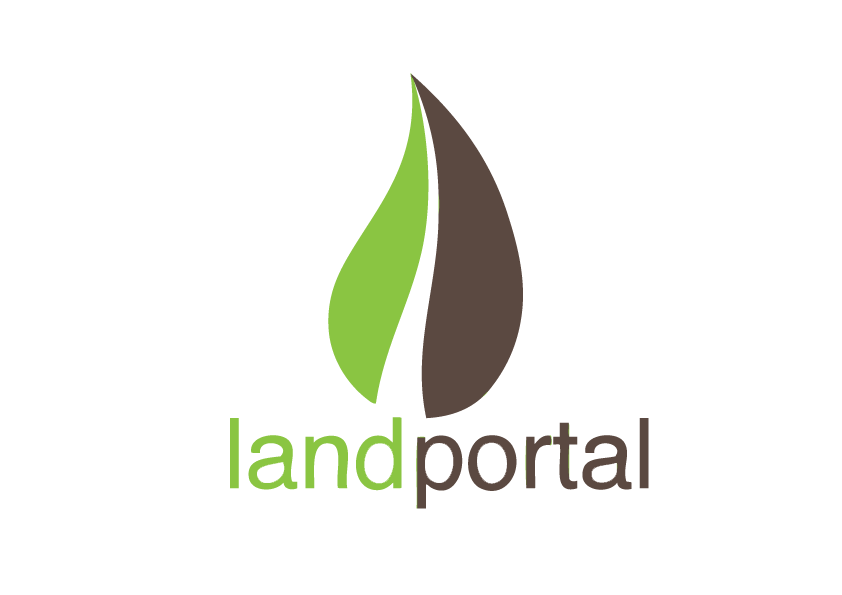
Table of Contents
Connecting people, sharing knowledge, increasing transparency: Using online platforms to increase access to open data and share best practices of monitoring women’s land rights
Key Questions
The key questions for ICTs, land rights experts, activists, or practitioners around which the discussion is to focus are:
- Have you used collaborative online platforms to help promote equitable access to land and natural resources? Can you share with us an example?
- To what extent can collaborative online platforms contribute to the opening of data? Can you share with us an example?
- Can you share with us any examples on how can they contribute to increasing transparency in land and natural resource governance?
- For the collaborative online platforms you have used, what have been the advantages and drawbacks? What suggestions do you have to improve them?
- What concrete example of monitoring women’s land rights would you like to share that other might find useful? What have you learned from your successes or mistakes that you would like to share with others in a land governance on-line community?
The discussion will take advantage of the International Land Coalition’s (ILC) expertise in monitoring land processes by being facilitated by the Coalition, in collaboration with ILC members and other Land Portal partners.
About
Over the past decade, there has been a growing understanding of ICT, in particular the Internet, as a powerful instrument for advancing economic and social development and the enhancement of networking, participation and advocacy. ICTs also have the potential to improve interaction between different stakeholders. The rise of the Internet and online platforms have changed the ways in which people connect, exchange ideas and build knowledge. Open, collaborative and user-driven online platforms encourage dialogue and the sharing of information and good practices around critical issues and have a good potential for generating new knowledge and increasing transparency – and, ultimately, to improve social equity and strengthen democracy.
The The Land Portal is a good example as it acts as an online hub for sharing information and fostering dialogue on land related issues. This is accomplished through a user driven platform which allows users to share information by uploading content, commenting and rating existing information, and retrieving information using specific filters. The Land Portal enthusiastically advocates for open-data and open knowledge, believing that open and transparent information is the key means to achieving sound and sustainable land governance. The Portal also provides a forum for dialogue, recognising online discussions as a means for bringing people from different countries and different sectors together around pertinent issues. These two functions- data aggregation and stakeholder dialogue- provide the framework for new partnerships by empowering land-concerned individuals, communities, organisations, practitioners, and policy makers to share perspectives and best practices, and to collaborate strategically.
Alongside the Land Portal, platforms such as Wikigender, e-agriculture, AIMS, FSN-Forum and the Open Development list offer services including list serves, communities of practice and knowledge sharing platforms on the issues of natural resource governance and/or gender equity.
Previous examples of sharing good practices through online platforms include the online discussion leading up to the ILC-IFAD-FAO side event at the Commission on the Status of Women (CSW), and the Gender, Information and Communication Technologies (ICTs) and Rural Livelihoods discussion hosted by e-agriculture. The online discussion leading up to the CSW side event was held simultaneously on the Land Portal and in the FSN-Forum with over 70 contributions received from 32 countries, from grassroots activists, researchers, NGOs and government staff.
This discussion aims to bridge institutional, academic and community experiences in using online platforms and monitoring women’s land rights, collecting contributions from grassroots organisations, civil society, IGO’s and governments.
The discussion will be facilitated by the International Land Coalitions (ILC) and will take advantage of ILC expertise in monitoring land processes in collaboration with ILC members and other Land Portal partners.
How can I participate?
The discussion will be facilitated by the International Land Coalition (ILC) (http://www.landcoalition.org/) Women’s Land Rights team. It will be running from 6-20 February simultaneously on the Land Portal (http://landportal.info/) and across the following five platforms:
- Wikigender (http://www.wikigender.org/index.php/New_Home)
- E-agriculture (http://www.e-agriculture.org/)
- AIMS (http://aims.fao.org/)
- FSN-Forum (http://www.fao.org/fsnforum/)
- Open-Development list and related open data communities (http://lists.okfn.org/mailman/listinfo/open-development)
| Wikigender | 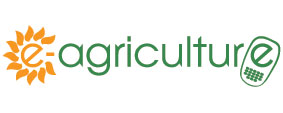 |
AIMS | LogoFSN | Open-Dev |
Results
Results of the discussion are to be analysed and synthesized into a synthesis report/policy brief to be distributed across all platforms, as well as into a more in-depth paper to be presented at the annual World Bank Land and Poverty Conference, to be held in Washington DC from April 8-11 2013.
Outcome Documents
- Using online platforms to increase access to open data and share best practices of monitoring women’s land rights (Collections of contributions received for the on-line discussion)
- Connecting people, sharing knowledge, increasing transparency. Using the Land Portal to increase access to open data, share best practices and monitor women’s land rights (Meggiolaro, Laura; Pallas, Sabine; Davies, Tim; Treakle, Jordan, 2013)
Contribute to this online discussion!
We look forward to your participation! We strongly encourage you to disseminate news about the online discussion via your networks and on Twitter using the following link to this page: http://bit.ly/YBwUFa
Anyone with an Internet connection is invited to participate in the discussion and we encourage you to express your views on this pressing issue.
Please note however that comments will be moderated to ensure that there is no spam disrupting the discussion.
To participate, simply type your comment below or register directly via Disqus, Twitter or Facebook before typing your comment. To insert a URL hyperlink, make sure you shorten the URL first before posting it, otherwise it may not work. (e.g. using bitly, google url shorterner, tiny url…)
Problems to comment? Please make sure your browser supports Javascript. Disqus is rendered correctly in all major web browsers, including Internet Explorer 9, Firefox, Chrome, Safari, and Opera. On mobile devices, Disqus currently only supports browsers using the WebKit layout engine. If you encounter any problem posting your comment, please email us at contact@wikigender.org and we will assist you.
|url=[/DoubleBrace] [/DoubleBrace]See Also
- The Land Portal
References
- February 6, 2013
- 0
- 6415
- Online Discussions / Discussions en ligne, Partners
- More
Online Discussion: Transforming social norms to prevent violence against women and girls
|
|||
- February 4, 2013
- 0
- 19873
- Online Discussions / Discussions en ligne
- More
Women and Climate Change Online Discussion
|
|||
- June 10, 2012
- 0
- 6891
- Online Discussions / Discussions en ligne
- More
Summary of the discussion: How can access to ICTs promote opportunities for women and girls?
The Wikigender Team thanks all of you who posted comments in its first online discussion on: how can social networks foster gender equality?
Below is a short summary of the main points that came out of the discussion.
You can still view the comments of the discussion by visiting Online Discussion: How can access to ICTs promote opportunities for women and girls? .
Key points of the discussion
The positive sides of social networks
There was consensus about the added value of social networks in empowering women and girls. Examples were given by Estelle, Angini, Anna and Ousmane, among others, of the power of sites such as Twitter, Facebook and YouTube for spreading and sharing information in all parts of the globe. Such sites are accessible by anyone with access to the Internet and easily allow the exchange of best practices, practical advice and counselling for women and girls. Whether to initiate a campaign such as the right to drive or a campaign to end violence against women, such tools are powerful vehicles of information that can mobilise and sensitise the masses. Camila highlighted the power of social networks to create a sense of community to exchange best practices and find solutions using a collective approach. Anna gave the example of online professional networks such as LinkedIn – for career development and professional guidance or mentoring. For Liz, social networks allow women to remain anonymous if they wish so and express their views on gender equality issues without the fear of being judged. Finally, Crystal from the International Knowledge Network of Women in Politics (Asia Pacific region) presented the iKNOW Politics platform and the main points of an e-discussion that they hosted. For example in politics, ICTs help women to keep their campaign costs down.
The Women’s Information Centre also mentioned their publication and we would encourage them to share the link to the publication with the rest of the community.
Some limitations
Yet there were a few points that are worth highlighting as they show the limitations of social networks.
Angela mentioned the importance of involving women and girls in the early design and deployment stages of new technologies, as it is often women who have to adapt to the technology, which is not always straightforward. Somali also reinforced the point of building the skills and capacity of women to effectively use social networks – so ensuring education and training is key. Angini mentioned the technological issue of “access” in developing countries, where insufficient bandwidth may not allow women to view videos on YouTube over the Internet as easily as their female counterparts in developed countries. Simon mentioned the adverse effects that social media can have, as girls are often the target of bullying, which is increasingly facilitated by online social networks. Philippa reminded us of the necessity to close the digital divide – a gap between individuals and communities that have access to information technologies and those that don’t, according to Aleph Molinari – and within it, the gender divide, which reinforces existing economic and social divides, is caused by a lack of access to information made available by ICTs and results in a divide by which women are poorer than men in terms of ideas and information. This is echoed by last year’s finding that 90% of users creating articles in Wikipedia are male. Estelle shared a blog post about the gender differences between print and digital literacy. Finally,
Bringing the technology to a particular community
Crystal raised a very important point when trying to reduce the gender divide within the digital divide: for example, a programme was put in place in Afghanistan where instead of giving women mobile phones (which would be confiscated by their husbands and fathers), and ad campaign was put in place with the message that “good” fathers and husbands provided cell phones for their wives and daughters. This was a successful strategy in addressing persisting and discriminatory socio-cultural norms while increasing women’s access to new technologies, and therefore helping to balance their family and work time. Angela, Somali and Paula also mentioned the use of mobile phone in lifting women out of poverty, although this will be seen more in depth in future online discussions.
Looking forward
This was a very stimulating online discussion of nearly 20 comments! the discussion allowed us to think a bit more on how issues of equal access and opportunities can be resolved in developing countries and how the online world of social networks can be made a safer place for all women and girls. We also learned of some success stories of women and girls using social networks to improve their daily personal and professional lives. Now, the Wikigender Team would like you to keep your inspiration up and to in Wikigender on one of these issues!
- February 29, 2012
- 0
- 2907
- Online Discussions / Discussions en ligne, Wikigender
- More
Online Discussion: How can access to ICTs promote opportunities for women and girls?
From 3-10 February 2012, Wikigender hosted its first online discussion. The chosen topic echoed the recently launched [Special_Focus|Girls in ICT portal], which we feature in our Community Portal Wikigender gathered your views on how can access to ICTs promote opportunities for women and girls.
In particular, the main sub-question here is how can social networks foster gender equality.
Whether you work in the ICT sector and you are a woman, if you have succeeded thanks to social networks and would like to share your story, or if you would like to simply express your opinion on whether social networks can foster gender equality, your contributions are welcome!
For inspiration, see the articles on .
Contribute to the discussion!
The discussion will be centered around the following questions:
- Best practices and case studies of where women and girls were empowered via social networks (e.g. starting a business, career, education…)
- Organisations, networks and tools which have been essential and successful in empowering women and girls
- The wider policy context (equal opportunities and access issues)
How to contribute
Anyone is able to participate in the discussion and we strongly encourage you to express your opinions on the topic. Please note however that comments will be moderated to ensure that there is no spam disrupting the discussion.
To participate, simply type your comment below or register directly via Disqus, Twitter or Facebook before typing your comment.
To insert a URL hyperlink, make sure you shorten the URL first before posting it, otherwise it may not work. (e.g. using bitly, google url shorterner, tiny url…)
A summary of the discussion is now available!
|url=[/DoubleBrace] [/DoubleBrace]- February 1, 2012
- 0
- 9048
- Online Discussions / Discussions en ligne, Wikigender
- More

